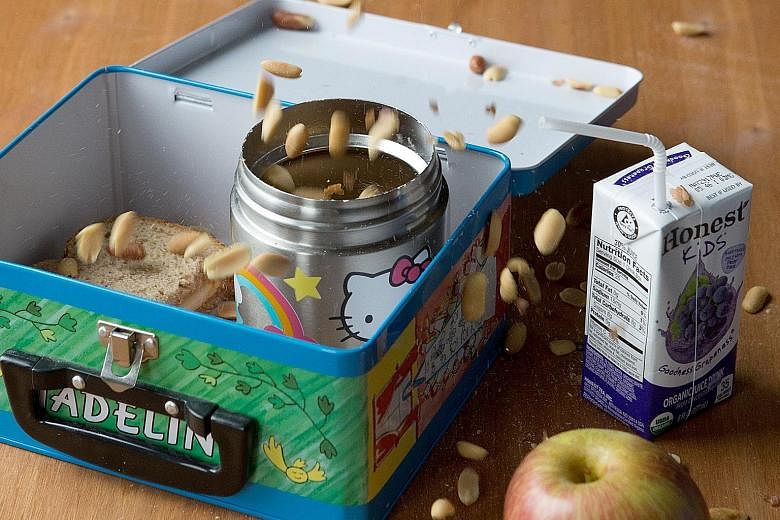Children with food allergies may get teased by their classmates at school.
Experts give tips on how schools, students and parents can deal with bullying of this nature.
TALK TO YOUR CHILD
If you have a child with a food allergy, you should start a conversation in a non-threatening way, said Dr Scott Sicherer of the Jaffe Food Allergy Institute at the Icahn School of Medicine at Mount Sinai in New York.
You could ask her: "Has anyone ever made you feel bad about your food allergy, or bothered or teased you about it? It's okay to let me know, you won't get into trouble. I know this happens to some kids and the school can do something about it without involving me or you directly."
If your child responds that, yes, she has been a victim of bullying, Dr Sicherer said you can explain to her that adults can help.
Parents can discuss this with the school administration, he added.
The school can institute anti- bullying procedures, ideally including education about the seriousness of food allergies.
ASK OPEN-ENDED QUESTIONS
Ask your child how was her day at school. This can open up enough information to indicate if there are concerns, said Assistant Professor Linda Herbert of the Children's National Health System.
A parent can ask questions like: "How was lunch today?" "Who was at your table?" "What activities did you do?"
By getting a conversation going, you might learn that your child sat by herself during lunchtime.
By asking why that happened, the conversation may reveal whether she is being bullied, Prof Herbert said.
BUDDY UP, DON'T ENGAGE A BULLY
Children should learn skills appropriate for any kind of bullying.
Prof Herbert said: "You don't engage with a bully. You have a buddy and you walk away.
"You find out what the administration policy is on bullying and who you can talk to in school, if needed."
REASSURE THE BULLIED
Dr Sicherer said he tells patients: "You are not about the foods you can't eat. There are people who are diabetics who can't eat certain foods. There are people who have celiac disease who can't eat certain foods. And there are people who are vegetarians who have a specific diet. So having a diet doesn't define you."
He said parents should remind children of their strengths in school to make them feel better about themselves.
EDUCATE THE COMMUNITY
Schools need to educate students about food allergies as well as the need to keep young people safe, said Prof Herbert.
"Schools and teachers can provide an atmosphere where everyone is aware of food allergies and other chronic illnesses."
ENCOURAGE NON-FOOD ACTIVITIES
Bullying might diminish if there were fewer situations in which food-allergic students were perceived as different.
Prof Herbert said: "Schools can ensure there are social activities that don't revolve around food. It's perfectly possible to have acti vities that don't revolve around cake." For example, teachers can allot extra recess time for the kids to play with balloons outside the classroom.
THE WASHINGTON POST

